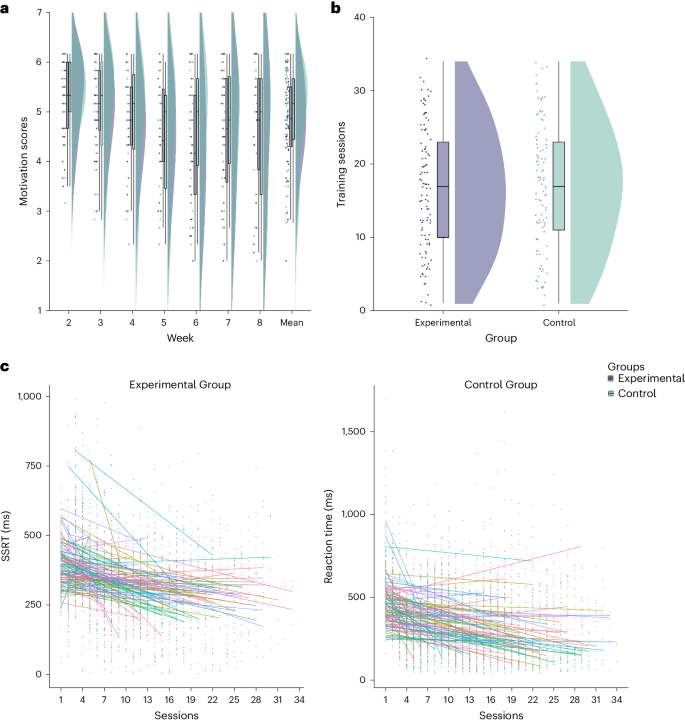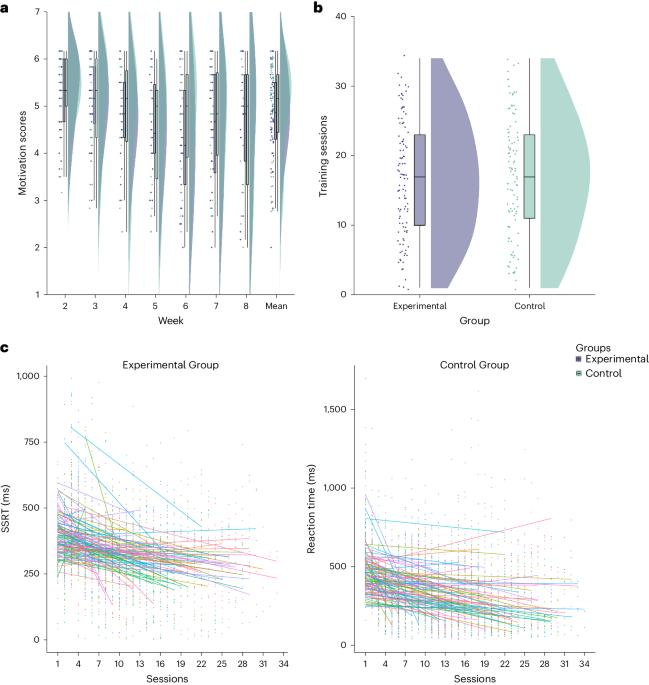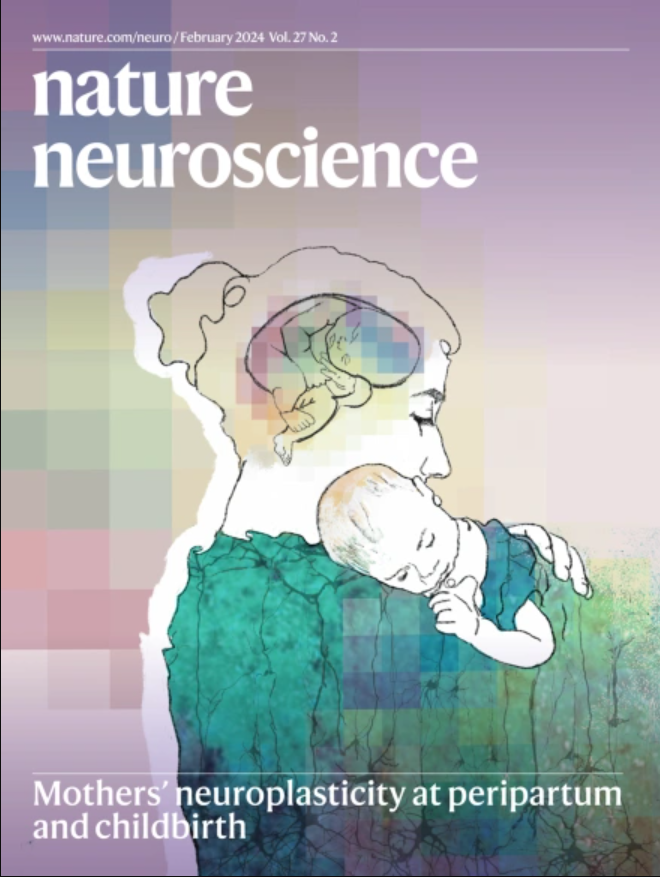Cognitive control training with domain-general response inhibition does not change children’s brains or behavior
IF 21.2
1区 医学
Q1 NEUROSCIENCES
引用次数: 0
Abstract
Cognitive control is required to organize thoughts and actions and is critical for the pursuit of long-term goals. Childhood cognitive control relates to other domains of cognitive functioning and predicts later-life success and well-being. In this study, we used a randomized controlled trial to test whether cognitive control can be improved through a pre-registered 8-week intervention in 235 children aged 6–13 years targeting response inhibition and whether this leads to changes in multiple behavioral and neural outcomes compared to a response speed training. We show long-lasting improvements of closely related measures of cognitive control at the 1-year follow-up; however, training had no impact on any behavioral outcomes (decision-making, academic achievement, mental health, fluid reasoning and creativity) or neural outcomes (task-dependent and intrinsic brain function and gray and white matter structure). Bayesian analyses provide strong evidence of absent training effects. We conclude that targeted training of response inhibition does little to change children’s brains or their behavior. Cognitive control is important for later-life success and is often targeted for interventions. Here the authors show that response inhibition training in a large sample of children over 8 weeks did not change their brains or behavior in the short or long term.


通过领域一般反应抑制进行认知控制训练不会改变儿童的大脑和行为
认知控制是组织思想和行动的必要条件,对于追求长期目标至关重要。儿童时期的认知控制与认知功能的其他领域有关,并可预测日后的成功和幸福。在这项研究中,我们采用随机对照试验的方法,测试了在 235 名 6-13 岁儿童中,是否可以通过预先注册的为期 8 周的反应抑制干预来改善认知控制,以及与反应速度训练相比,这种干预是否会导致多种行为和神经结果的变化。我们的研究表明,在为期一年的随访中,与认知控制密切相关的测量指标都得到了长期改善;然而,训练对任何行为结果(决策、学业成绩、心理健康、流体推理和创造力)或神经结果(任务依赖性和内在脑功能以及灰质和白质结构)都没有影响。贝叶斯分析有力地证明了训练效果的缺失。我们的结论是,有针对性的反应抑制训练几乎不会改变儿童的大脑或行为。
本文章由计算机程序翻译,如有差异,请以英文原文为准。
求助全文
约1分钟内获得全文
求助全文
来源期刊

Nature neuroscience
医学-神经科学
CiteScore
38.60
自引率
1.20%
发文量
212
审稿时长
1 months
期刊介绍:
Nature Neuroscience, a multidisciplinary journal, publishes papers of the utmost quality and significance across all realms of neuroscience. The editors welcome contributions spanning molecular, cellular, systems, and cognitive neuroscience, along with psychophysics, computational modeling, and nervous system disorders. While no area is off-limits, studies offering fundamental insights into nervous system function receive priority.
The journal offers high visibility to both readers and authors, fostering interdisciplinary communication and accessibility to a broad audience. It maintains high standards of copy editing and production, rigorous peer review, rapid publication, and operates independently from academic societies and other vested interests.
In addition to primary research, Nature Neuroscience features news and views, reviews, editorials, commentaries, perspectives, book reviews, and correspondence, aiming to serve as the voice of the global neuroscience community.
文献相关原料
| 公司名称 | 产品信息 | 采购帮参考价格 |
|---|
 求助内容:
求助内容: 应助结果提醒方式:
应助结果提醒方式:


